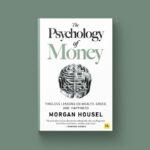Napping is a common practice that many people engage in to combat fatigue and recharge their energy levels. However, recent research has shown that napping can have a profound impact on memory consolidation and learning. In this article, we will delve into the science behind napping and its effects on memory, cognitive performance, creativity, stress reduction, brain function, and overall well-being.
Sleep is an essential component of our daily lives, and it plays a crucial role in various physiological processes. One of the most important functions of sleep is memory consolidation. During sleep, our brains process and store information that we have acquired throughout the day. This process helps to solidify memories and make them more accessible for future retrieval. Without adequate sleep, our ability to learn and retain information can be significantly impaired.
Key Takeaways
- Napping can improve memory consolidation and retention.
- Napping can enhance learning and cognitive performance.
- Napping can boost creativity and problem-solving skills.
- Napping can reduce stress and improve mental health.
- Napping can have a positive impact on brain function and neuroplasticity.
The Role of Sleep in Memory Formation and Retention
To understand how napping can enhance memory consolidation, it is important to first understand the different stages of sleep. Sleep is divided into two main categories: non-rapid eye movement (NREM) sleep and rapid eye movement (REM) sleep. NREM sleep consists of three stages: N1, N2, and N3. REM sleep is the stage where dreaming occurs.
During NREM sleep, the brain undergoes slow oscillations that are believed to be crucial for memory consolidation. These oscillations help to strengthen the connections between neurons and facilitate the transfer of information from short-term to long-term memory storage. REM sleep, on the other hand, is thought to play a role in emotional processing and creativity.
The Benefits of Napping for Learning and Cognitive Performance
Numerous studies have shown that napping can have significant benefits for learning and cognitive performance. One study conducted by researchers at the University of California, Berkeley found that a 90-minute nap can improve learning and memory retention. Participants who took a nap after learning a new task performed significantly better on a memory test compared to those who did not nap.
Another study published in the journal Nature Neuroscience found that a short nap of just 10 minutes can improve alertness and cognitive performance. Participants who took a brief nap showed improved reaction times and increased vigilance compared to those who did not nap.
How Napping Can Boost Creativity and Problem-Solving Skills
Napping has long been associated with enhanced creativity and problem-solving skills. Many famous inventors, artists, and writers have been known to take regular naps to boost their creative thinking. For example, Albert Einstein, Thomas Edison, and Salvador Dali were all avid nappers.
Napping can enhance creativity by allowing the brain to make new connections and associations between different ideas. During sleep, the brain is able to process information in a more relaxed state, which can lead to novel insights and solutions to problems. Additionally, napping can help to clear the mind and reduce mental clutter, allowing for more focused and creative thinking.
Napping as a Strategy for Reducing Stress and Improving Mental Health
In addition to its cognitive benefits, napping can also be an effective strategy for reducing stress and improving mental health. When we are sleep-deprived, our bodies produce higher levels of stress hormones such as cortisol. This can lead to increased anxiety, irritability, and difficulty coping with stressors.
Taking a nap can help to reduce stress by allowing the body to relax and recharge. During sleep, the body’s stress response is dampened, and cortisol levels decrease. This can help to promote feelings of calmness and relaxation. Napping can also improve mood and overall well-being by increasing the production of serotonin, a neurotransmitter that is associated with feelings of happiness and contentment.
The Impact of Napping on Brain Function and Neuroplasticity

Napping has been shown to have a positive impact on brain function and neuroplasticity. Neuroplasticity refers to the brain’s ability to change and adapt in response to new experiences and learning. It is a crucial process for memory formation and cognitive function.
Research has shown that napping can enhance neuroplasticity by promoting the growth of new neurons and strengthening existing neural connections. During sleep, the brain undergoes a process called synaptic pruning, where unnecessary connections are eliminated and important connections are strengthened. This process helps to optimize brain function and improve cognitive performance.
Napping vs. Caffeine: Which is More Effective for Enhancing Alertness and Productivity?
When it comes to enhancing alertness and productivity, napping and caffeine are two popular strategies that people often turn to. Both methods have their pros and cons, and the choice between the two depends on individual preferences and circumstances.
Napping is a natural way to recharge the body and mind, and it can provide a longer-lasting boost in alertness compared to caffeine. A well-timed nap can help to combat fatigue and improve cognitive performance for several hours. However, napping may not be feasible for everyone, especially those who have busy schedules or work in environments where napping is not allowed.
Caffeine, on the other hand, provides a quick jolt of energy and can help to temporarily increase alertness and focus. It is readily available in various forms such as coffee, tea, energy drinks, and supplements. However, the effects of caffeine are short-lived, and excessive consumption can lead to side effects such as jitteriness, increased heart rate, and disrupted sleep.
Tips for Maximizing the Benefits of Napping for Memory Consolidation and Learning
To maximize the benefits of napping for memory consolidation and learning, it is important to follow some practical tips:
1. Keep naps short: Aim for a nap duration of 10-30 minutes to avoid entering deep sleep and feeling groggy upon waking.
2. Find a quiet and comfortable environment: Create a sleep-friendly environment by minimizing noise, light, and distractions.
3. Time your nap strategically: Napping in the early afternoon, around 2-3 pm, is generally recommended as it aligns with the body’s natural circadian rhythm.
4. Experiment with different nap durations: Some people may find that shorter or longer naps work better for them. It is important to find what works best for your individual needs.
Napping in Different Cultures: A Cross-Cultural Exploration of Sleeping Habits and Beliefs
Napping habits and beliefs vary across different cultures. In some cultures, such as Spain and Greece, taking a midday siesta is a common practice. Siestas are typically longer naps that can last for several hours and are believed to help combat the heat of the day and promote relaxation.
In other cultures, such as Japan, napping is seen as a sign of laziness or lack of productivity. In these cultures, long working hours and a strong emphasis on productivity often discourage napping during the day.
Embracing the Power of Napping for Improved Memory, Learning, and Overall Well-Being
In conclusion, napping is not just a way to combat fatigue; it is a powerful tool that can enhance memory consolidation, learning, creativity, problem-solving skills, stress reduction, brain function, and overall well-being. By understanding the science behind napping and implementing effective strategies, we can harness the benefits of napping to improve our daily lives. So go ahead, embrace the power of napping and give your brain the rest it deserves.
If you’re interested in boosting your brainpower and improving cognitive function, you may also want to check out this article on «Why Exercising the Brain is Important» from Intelligence Snacks. It delves into the importance of keeping our brains active and provides valuable tips and techniques for enhancing critical thinking and analytical reasoning. With a focus on developing cognitive skills, this article complements the benefits of napping for memory consolidation and learning. So, why not give your brain a workout and explore the fascinating world of brain exercises? Read more here.
FAQs
What is memory consolidation?
Memory consolidation is the process of stabilizing a memory after it has been initially acquired, allowing it to be retrieved later.
What is napping?
Napping is a short period of sleep, typically taken during the day.
How does napping help with memory consolidation?
Napping has been shown to enhance memory consolidation by allowing the brain to process and store information learned earlier in the day.
What are the benefits of napping for learning?
Napping can improve learning by enhancing memory consolidation, increasing alertness and attention, and reducing fatigue and stress.
How long should a nap be for optimal memory consolidation?
Research suggests that a nap of 20-30 minutes is ideal for enhancing memory consolidation.
When is the best time to take a nap for memory consolidation?
The best time to take a nap for memory consolidation is typically in the early afternoon, when the body experiences a natural dip in alertness and energy levels.
Are there any downsides to napping?
Napping can disrupt nighttime sleep if taken too late in the day or for too long. Additionally, some people may experience grogginess or disorientation upon waking from a nap.






